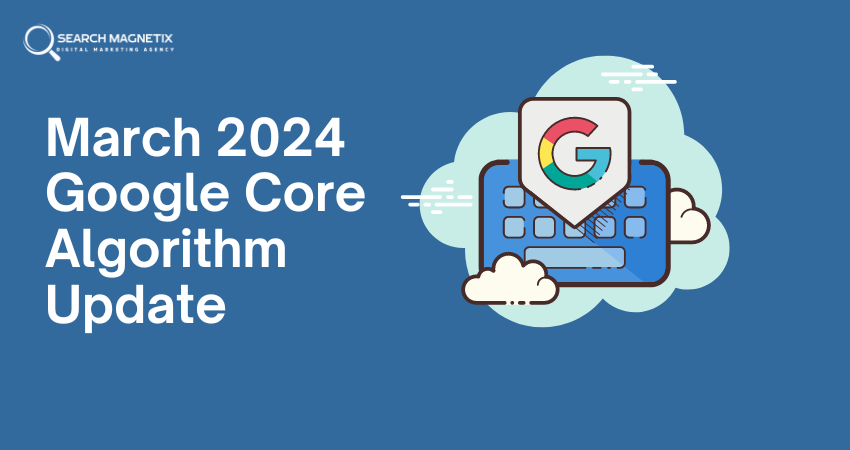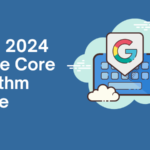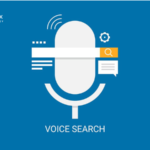Well, it might look all confusing to you, right? So, here we are with our blog. We will discuss everything related to Google’s core update of March 2024. This blog entails:
- Google March 2024 Core Update
- What Does the Update Aim to Do?
- Potential Risks From the Update, and much more
Google March 2024 Core Update: A Quick Introduction
As per the announcements made by Google, many SEO industries have faced a major shift in search algorithms. The March 2024 core update is not a typical algorithm adjustment. It consists of a core update and a spam update, each targeting various aspects of SEO. As the name suggests, these updates focus on improving the quality of search results. In other words, Google has updated its policies to tackle:
- Low-quality content
- Spam
Let’s discuss this in detail.
Reducing Unhelpful Content
Statement by Google, “Based on our evaluations, we expect that the combination of this update and our previous efforts will collectively reduce low-quality, unoriginal content in search results by 40%.”
While this may be good news for searchers, it is bad one for websites publishing large volumes of low-quality content that does not consider its readers.
New Spam Policies
Google states, “We’ll take action on more types of these manipulative behaviors starting today. While our ranking systems keep many types of low-quality content from ranking highly on Search, these updates allow us to take more targeted action under our spam policies.”
Site Reputation Abuse
The new core update of Google also addresses the issue of site reputation abuse. In an effort to ensure quality search results, the update will penalize websites hosting low-quality content, exploiting the reputation of the hosting site.
“For example, a third party might publish payday loan reviews on a trusted educational website to gain ranking benefits from the site. Such content ranking highly in Search can confuse or mislead visitors who may have vastly different expectations for the content on a given website.”
With the example provided by Google for site reputation abuse, it is clear that the search engine will now consider such content in the category of spam (if it is produced primarily for ranking purposes).
Expired Domain
The next target of Google’s updated spam policies will be expired domain abuse. As the name suggests, website owners utilize expired domains and repurpose them to boost the search rankings of low-quality content. This unethical approach by marketers misleads users into believing that the new content is part of a particular older and reputable site. Therefore, Google taking action against this misconduct isn’t just about keeping search results fair. It’s also about making sure people can trust what they find online.
Which Sites Are at Risks from The March Core Update?
Every update has its own set of drawbacks to digital marketers. As Google is going to focus on specific goals, there are only a few sites that will be at risk. Your site can be in trouble if:
- If you primarily depend on AI-generated content without ensuring its quality through human interference, you might notice declines in your website’s visibility on Google Search Console.
- Your website may have backlinks that have been sourced from expired domains, which could be boosting low-quality content.
- If you’re making money by promoting affiliate content that doesn’t align with your site’s goals and hasn’t been reviewed by you.
Signs That Your Site Has Been Impacted
- Visit Google Search Console.
- Look for any major drops in impressions and clicks, majorly starting from March 5th, 2024.
- Besides, you can also check for GA4 for organic traffic drops.
Tip: Some fluctuations are normal. Just be mindful of any significant drop.
Steps to Take If Your Site Has Been Impacted From the Update
Understanding the impact of Google’s algorithm updates is crucial for website owners. If your site experiences a drop in organic traffic or manual action penalties, it’s essential to identify the root cause and take corrective action. Whether it’s due to the use of AI-generated content or questionable backlink practices, addressing these issues promptly is key. So stay with us to deal with the impact:
- First and the foremost step is to check your indexed pages and manual actions in Google Search Console. See if there are any modifications that you should be aware of.
- Next is to identify the reason behind the dropped traffic. If your site has been affected due to the usage of AI content, run a content audit to check which pages are experiencing a drop in organic traffic. Take appropriate action based on your findings — either enhance or remove the affected content. Simultaneously, address how you incorporate generative AI into your content creation process.
- If the drop is because of the backlinks, skip the disavows. Instead, concentrate on acquiring backlinks from more reputable domains. A revised link-building strategy can help you acquire high-quality backlinks.
- Once you’ve examined the issues causing problems with Google, you can revisit Google Search Console to request the reindexing of pages or submit a reconsideration request for any manual action penalties.
Key Takeaways
Google’s March 2024 Core Update has introduced significant changes to the SEO market, affecting websites across various industries. This update aims to enhance the quality of search results by targeting low-quality content and spammy practices. While this may improve the overall user experience, it poses challenges for websites that rely on AI-generated content or engage in spammy backlinks.
Frequently Asked Questions
What are the differences between Google’s March 2024 core update and previous updates?
Google’s March 2024 core update introduces new adjustments to how websites are ranked in search results. Unlike previous updates, it prioritizes factors like user experience, content quality, and relevance even more. Thus making websites focus on providing valuable, engaging content that meets user needs effectively. In the core update, user satisfaction and trustworthiness may play a bigger role in rankings. Therefore, it’s essential for website owners to stay updated with these changes and adapt their strategies accordingly to maintain and improve their search visibility and rankings.
What is the schedule for adopting Google’s March 2024 core update’s latest spam guidelines?
With the introduction of the March 2024 core update, websites are provided with specific timelines to ensure compliance with updated spam policies and these are:
- Website owners are provided with a timeframe of sixty days to ensure their adherence to the updated site reputation policy. This extended period offers enough opportunity to marketers for a thorough review, adjustment, and implementation of necessary changes.
- With the March 2024 Core Update, Google plans to introduce more changes in the week after announcing it. These updates will modify how search results appear, aiming to make the search engine work better.
What are some common misconceptions about Google’s new spam policies?
One common misconception is that Google’s new spam policies only target blatant spam tactics. In reality, they also address general spam strategies like keyword stuffing and low-quality content. Another misconception is that compliance with previous guidelines is enough. However, with the evolving Google algorithms, adhering to the latest rules has become more important than ever. Some also believe that small websites aren’t affected, but all sites must comply to maintain visibility. Understanding these misconceptions helps website owners adjust their strategies effectively and maintain compliance with Google’s spam policies for better search rankings.









